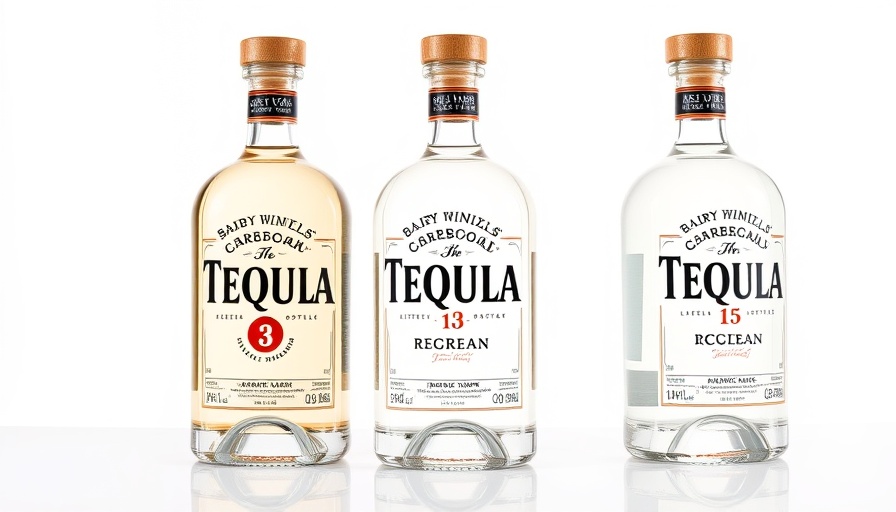
Understanding the Controversy Behind Casamigos and Don Julio
Recent lawsuits against Diageo, the parent company of popular tequila brands Casamigos and Don Julio, have raised serious questions about the authenticity of these products. Accusations claim that these tequilas, which are often marketed as being crafted from 100% Blue Weber Agave, may actually contain a significant percentage of cane alcohol or other additives, thus compromising their quality and authenticity. These claims have caught the attention of consumers and critics alike, particularly among premium tequila drinkers who expect high standards in their spirits.
Tequila's Strict Regulations
The heart of the issue lies in the guidelines set by the Tequila Regulatory Council (CRT) in Mexico. These regulations are designed to maintain the integrity of tequila production, stipulating that any product labeled as 100% agave must consist solely of Blue Weber agave, with permissible additives capped at under one percent. However, the lawsuits claim that both Casamigos and Don Julio do not adhere to these standards, presenting a potential legal predicament for Diageo and an alarming revelation for consumers who have invested in these premium brands.
Consumer Backlash: A Community Response
As news of this controversy spreads, consumers are scrutinizing what they put into their glasses. Some tequila enthusiasts, particularly in Philadelphia—a city known for its vibrant bar scene—are speaking out. They express concerns over transparency in the alcoholic beverage industry and a desire for greater accountability from brands that they’ve come to trust. This resonates strongly in a social climate where consumers demand authenticity in every product, thus igniting a grassroots movement to hold brands accountable.
Scientific Testing: Hard Evidence or Misinformation?
The ongoing legal disputes include lab results alleging that samples of Casamigos and Don Julio displayed alarmingly low ethanol levels derived from agave. For instance, lab tests cited in the lawsuits revealed that Casamigos Blanco contained only 33% ethanol from agave, well below the threshold required for even a mixto tequila. This raises questions about the quality claims made in their marketing materials and casts a shadow over the products’ perceived premium status.
The Future of Premium Tequila Branding
As these lawsuits progress, the future of premium tequila brands could be at risk. If Diageo is found to have mislabeled its products, it could trigger a reevaluation of the entire industry’s marketing practices. Consumers might start to demand more transparency in labeling, leading to stricter regulations and possibly reshaping how brands communicate the authenticity of their products. This evolution could benefit both consumers seeking quality spirits and the integrity of the tequila market.
Take Action: Know Your Tequila
For those who enjoy tequila—whether you're sipping it at a local bar or hosting friends at home—now is the time to stay informed about the products you choose. Keep an eye out for transparency in labeling and consider supporting brands that prioritize quality and authenticity. As a consumer, your choices can influence the market and encourage brands to uphold the standards that reflect the true essence of tequila.
 Add Row
Add Row  Add
Add 




Write A Comment